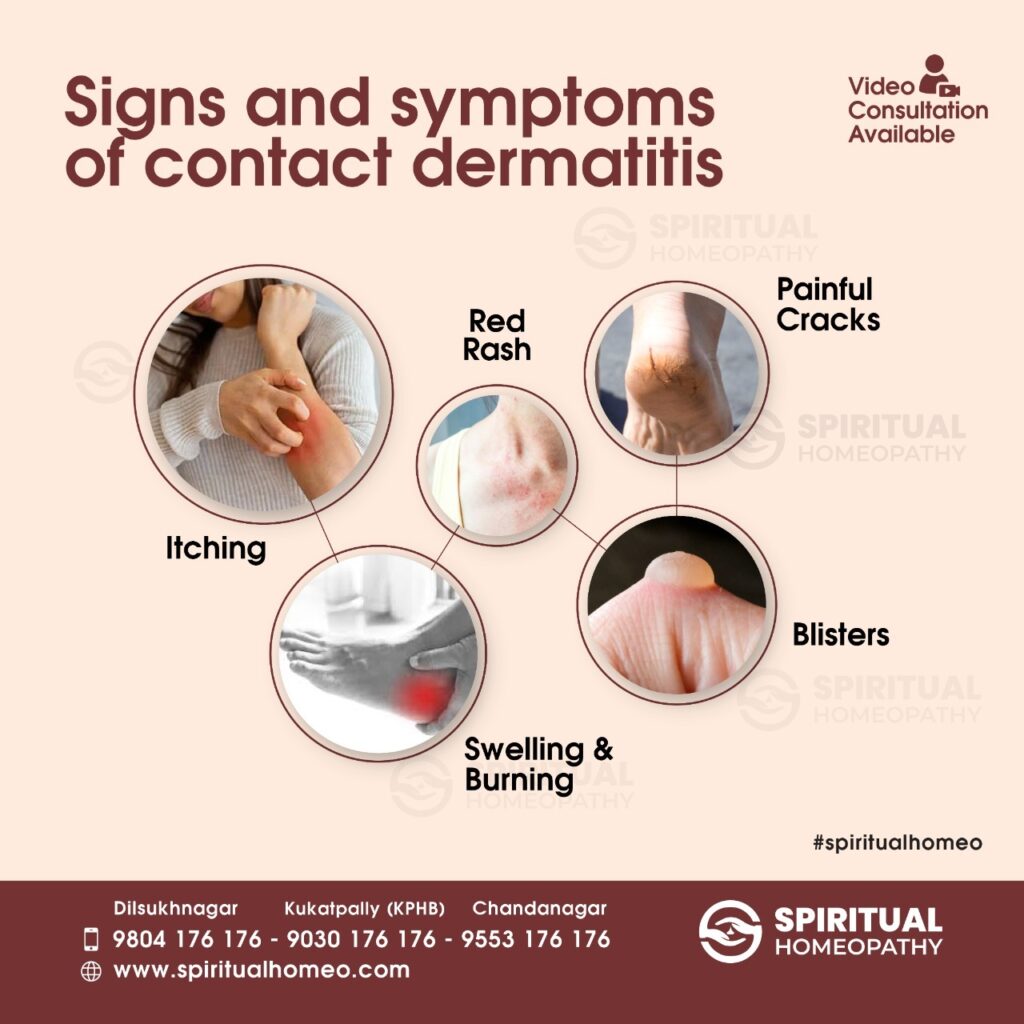Contact dermatitis is a skin condition characterized by inflammation of the skin in response to direct contact with an irritant or allergen. The signs and symptoms of contact dermatitis can vary depending on the type of dermatitis and the specific triggers involved. Here are some common signs and symptoms:
-
Skin redness: The affected skin may appear red, inflamed, or flushed.
-
Itching: Itching is a common symptom of contact dermatitis. The affected area may feel intensely itchy and may worsen with scratching.
-
Rash: Contact dermatitis often results in the development of a rash. The rash can vary in appearance, ranging from small red bumps to larger patches or blisters. The rash may be localized to the area of contact or may spread to adjacent skin.
-
Swelling: Inflammation of the skin can cause localized swelling or puffiness.
-
Pain or tenderness: The affected skin may be painful or tender to the touch, especially if blisters or open sores develop.
-
Dry, cracked, or scaly skin: Prolonged or severe contact dermatitis can lead to dryness, cracking, or scaling of the skin in the affected area.
-
Blisters or oozing: In some cases, contact dermatitis may cause the formation of blisters filled with fluid. These blisters may eventually break open and ooze clear or yellowish fluid.
-
Skin thickening or hardening: Chronic or repeated contact with irritants or allergens can lead to thickening or hardening of the skin in the affected area.
The symptoms of contact dermatitis usually occur within hours to a few days after exposure to the trigger and may persist for days or weeks. In cases of allergic contact dermatitis, symptoms may be delayed and appear 24 to 48 hours after exposure.
It is important to identify and avoid the triggers that cause contact dermatitis to prevent recurring episodes. If you suspect contact dermatitis or are experiencing persistent or severe symptoms, it is recommended to consult a healthcare professional . They can provide guidance on managing the symptoms and may prescribe you specific homeopathic medications, or other interventions to alleviate the inflammation and discomfort associated with contact dermatitis.



